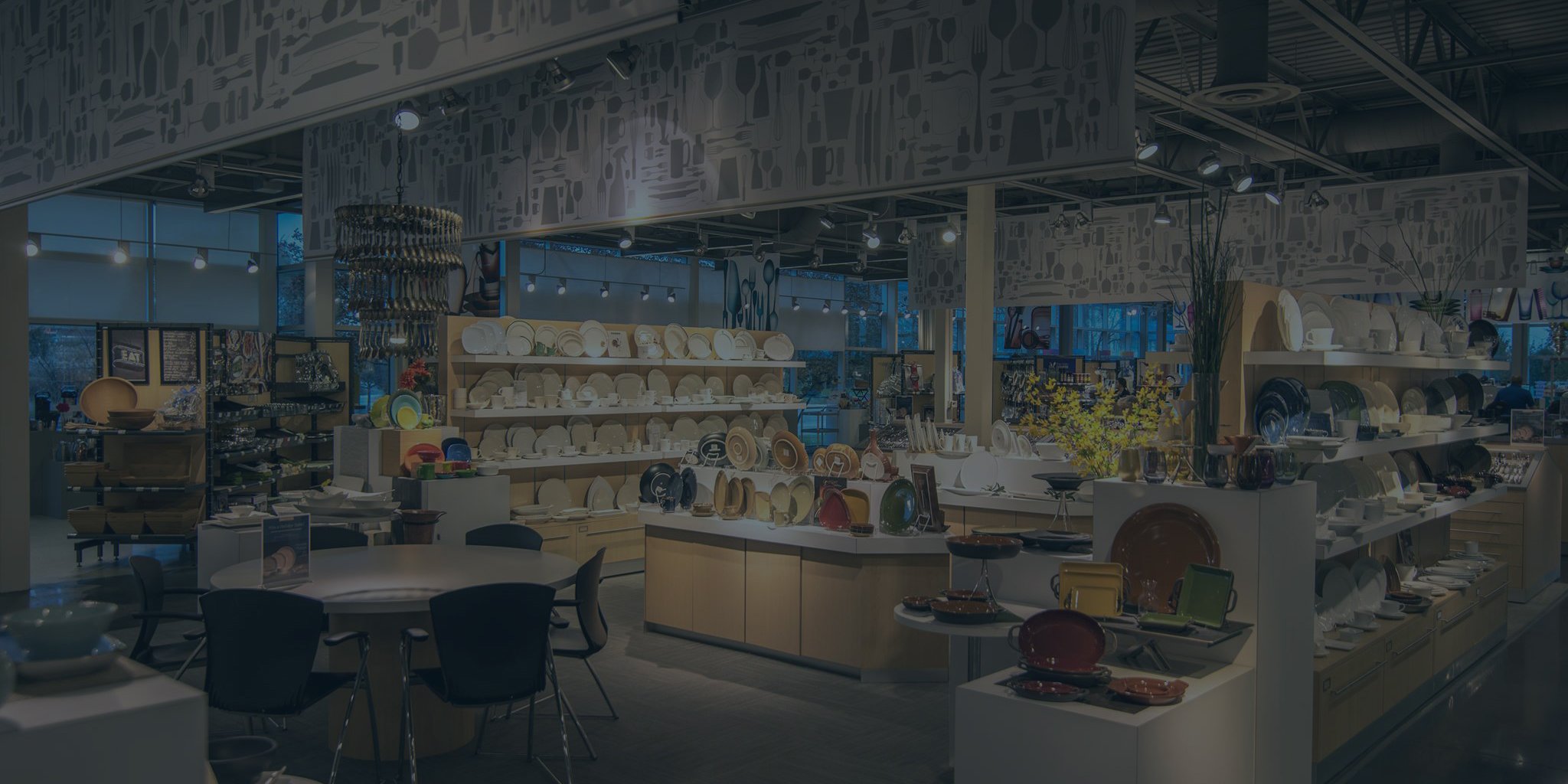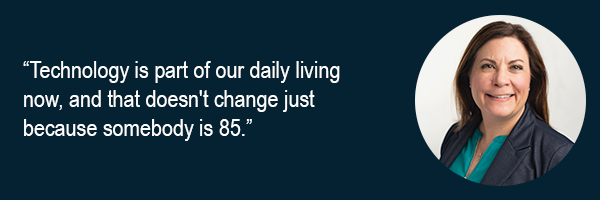Shelly Sievert, Boelter's Director of Business Development, joins The Boelter Wire podcast to conclude the series of discussions that focuses on senior living and the dining experience of its residents. In this episode, Shelly talks through dining room efficiencies and a variety of opportunities to streamline operations, more effectively manage the staff and maintain a well-run dining room experience.
To work with a Boelter expert on your senior living dining operation, contact us today.
Have a topic you'd like us to discuss? Send us your ideas!
Excerpts
Catering to the needs of the senior living community while also operating a restaurant, it's bound to present some challenges. What are some suggestions that may help to streamline the operations of a senior living dining room?
Shelly: There's so many ways that efficiencies or inefficiencies present challenges in senior dining restaurants and also in their food service operations. The first thing I'm going to recommend is: embrace technology whenever, wherever you can.
For instance, adapting a point of sale system–or POS as it's often called–can save time, simplify processes, enhance transparency and reduce paperwork. A few ways that they can help... They can help monitor resident preferences, and also their nutritional needs, so the nutritionist is going to have their recommendations for the resident's diet. Being able to access that on the point of sale system, the dining room staff can help that resident make a good choice for a meal.
They can also help reduce trips back and forth to the kitchen. Okay, we're ordering a burger. Well then, along with that burger, do you want ketchup, mustard, mayo, any side like that? Now you bring the food out and you don't have to go back and get that condiment for the meal.
They can also allow servers to submit the orders wirelessly right from the table. This keeps them from having to run back to the kitchen, maybe talk to the chef, talk to their friend, walk back out, etc. It's going to help them be a lot more efficient. Meaning less time from the side of the table to getting the order back to the kitchen.
This would be the food service server. There's all sorts of different titles. It could be dining room assistant. It could be the server. It could be the universal worker. But any in any of these, it would be the staff member taking the resident's order.
Also, by using a POS system, it would allow the leadership to take a much closer look at the data and to help them reevaluate their procedures. The POS system is going to enable access to their inventory and their planning information by seeing what's being ordered off the menu.
Some other ways to embrace technology that can also help with some efficiencies is using technology to help residents with their nutritional intake, maybe to track it, to help them browse new menu choices. So before they come down to the dining room, they know what's in a meal or what's being served. Also, they can learn more about how their food is prepared. You can turn it into a really fun event, where maybe you do a chef demonstration and then that is what the meal is served that afternoon.
There are some tableside tablets that you can just do a thumbs up and a thumbs down at the end of the meal. Get some feedback real-time, right then and there from that resident. That can allow the chef to make appropriate adjustments for the next time they're going to serve that meal.
...
Have you seen technology providing access to the residents, maybe from their apartments where they're living, where they can hop onto their own laptop to see the menu, the nutritional information, what the daily specials are? Do you see a lot of that, or is it more old school where they're going to see it on the menu in writing, maybe on a placard as they enter the restaurant? Or is it a combination of both?
Shelly: In independent living, you've got residents who basically are living on their own. Maybe they need a little bit of help here and there, but they've moved into the community because they're looking to avoid having to do things like yard work or maintenance on the house. They're very independent and they are embracing technology. More than likely, they could be on Facebook. They're probably emailing their family.
[You're] able to use technology with these residents. For instance, having your own channel on a website where they can go and they can see what the specials are, or they can see what activities, events, things like that are coming up. I've seen a combination of that. However, when the residents come down to the dining room, more than likely you will still have a paper copy of the menu. Technology is part of our daily living now, and that doesn't change just because somebody is 85.
Some other ways to also increase efficiencies is making homemade food. Use quality ingredients, things like freshly grown, locally sourced items. They really can help eliminate the thawing and they can reduce the amount of heavy seasoning and high sodium sauces or even just having to add a lot of salt just to get some flavor to that food.
You will have access to higher quality foods when you source some directly from local farms. It's the big farm-to-table movement that has been around for a long time, but now it's coming to our daily living and it's also coming to senior living communities, their daily food operations.
...
Is that pretty hard to set up? Depending on the area of where the senior living community is, reaching out and establishing those connections?
Shelly: I have not seen any troubles. If you frequent the farmer's market, a lot of times you can meet the providers of the different food, or there are networks where you can find the organic farms or local farms where you can purchase food directly... Better quality food, when it's offered, is eaten, and that means that generally being able to serve food at a lower overall cost.
More than anything, though, in order to really have great efficiency, communication is the key piece. What that means is that all members of the culinary team have to be on the same page, including the servers. The servers really are the ones that are engaging with those residents, possibly multiple times a day.
If you think about a restaurant, you've got your regulars. You might see those regulars once or twice, maybe even three times a week. [In a] senior living environment, you're seeing those residents once, twice, maybe three times a day. Those dining room servers are going to be a key part of communication when it comes to knowing what the seniors want.
I'll give you an example of my grandma. When she was 99 years old, she went to live at a senior living community. The woman made it to 100 years old, and at 99, she decided that she wanted to eat cake at every meal. And although many of my family members had a hard time with this, her community understood this. So what they would do is ask her what flavor cake she wanted. They bring her cake first, and then they would give her half of a serving of a regular meal, knowing that that was about all that she would eat. That’s very efficient.
The final thing to create efficiencies is to talk to your resident council. The resident council is a group of residents, typically that has been nominated by other residents, asked by staff members to sit with the food service team. They will offer their opinions, feedback, etc. And it's also a great way to be more efficient overall in the food service operations.
...
I'm hearing that there is a shortage of senior living workers, and probably it's spread across the entire senior living facility. But is it fair to say that the staff that manages and runs the dining room, that they're also feeling an impact?
Shelly: Absolutely. I recently read a survey from Lancaster Pollard, and 82% of senior living providers are seeing a shortage of workers. This is across the United States, across any type of care level as well. According to a LeadingAge staffing report, the average turnover rate at a senior living community is close to 44%.
Overall unemployment rates are at near record-breaking lows. Across every industry, everybody is feeling this pain. When you really think about it, that means that somebody from your current staff could walk out of your building today and probably start at another senior living community the next day. If they're a little disgruntled or if they're a little unhappy, there's not a big reason for them not to just walk out.
The other thing is senior living, especially in the dining world, they are competing for the same worker as other restaurants: waitstaff at restaurants or counter staff at convenience stores or even assistant managers at your quick serve restaurants like a McDonald's or Taco Bell.
...
Working with the senior living communities has got to be a little bit more challenging than just at your regular mom and pop restaurant or a chain restaurant.
Shelly: Absolutely. First and foremost, the level of experience in talking and connecting with people is going to be higher. People who are 85, 90 years old oftentimes don't have any issue saying if they're unhappy. So being able to manage and make a resident happy, if you have that skill, that's a really big deal.
The other thing is, sometimes stores like McDonald's or a gas station may be offering $2, $3, $4 more per hour. Now granted, they may have a lot worse hours. Maybe it's done by 8 o'clock at night at a senior living place, and at a convenience store, maybe up until 11 o'clock at night. That's something to consider as well.
But overall, senior living communities need to really focus on being an employer of choice.
...
If you're a manager of a senior living dining room, what are some of the things that you can do to accommodate for this worker shortage?
Shelly: Just being a senior living community doesn't mean that the workers who are working there want anything different than the rest of us want. They want good pay. They want convenience to either a bus line or getting there from their own home. They want good benefits. They want to feel valued. They want the opportunity to move up. All of these things still matter at a senior living community. Just because you're taking care of seniors doesn't mean you don't want these things in your job. Getting the basics right is key.
When you bring somebody onto your staff, having the executive team involved is great. It shows that frontline staff is valued. Maybe the executive team comes in and works a shift in the dining room and shows we're not going to ask you to do anything that we would not do ourselves. Maybe they run the dishwasher for a lunch afternoon, or maybe they are the people who are running the food. Whatever it is. Having that executive team be involved shows that the frontline staff are valuable too.
Next thing is offering flexibility in shifts. For instance, you may have a shorter shift so that a mom who has to pick up her kids can come and work. Maybe she comes in at 10:30, helps set up the kitchen for lunch, works through lunch and leaves by 2:00, 2:30 because she has to pick up her kids at 3:00. This is a great way to get somebody who maybe otherwise you couldn't hire. A lot of times, your part-timers are some of your most reliable staff.
Pay. Pay is such a big deal. I was recently at the Senior Housing News BUILD convention, and one of the panelists during that event said–and I'm going to quote him–he said, "We need to stop using the fact that we work with seniors as a reason not to pay competitively. Pay your staff competitively, and the added benefits of working with your residents will be the reason they stay."
In my 15 years, I have often heard, "Our staff work here because they love the residents." That is true, but when it comes to loving the residents or being able to buy their kids the clothes they need for school, that extra $2 an hour is going to make that big of a difference. As much as they love your residents, they probably love their kids just a little bit more. That's human nature, right? That's why if you pay competitively, they're going to stay. So take that reason to let them walk out your door off the table.
And I know that money is always tight, right? So let's look at managing overtime better. How can you offer more flexibility so that you don't have to offer as much overtime? Offer different shifts. All of those different types of things can help cut down on that overtime. That money that you're spending right now on your overtime, if you have less overtime, can be rolled into higher pay for your staff. And then you're not asking staff to put in 50-60 hour weeks–in other words, getting burned out.
...
When the dining room and kitchen staff are at full capacity and everyone is working together, things are working well. The benefits are going to be felt throughout the entire resident community. What are some of the effects that you've seen from a well-run, effective dining room in your experience?
Shelly: At its foundation, senior living communities are about taking care of people. And I like to refer to that as holistically, the whole person. When you've got an effectively run dining room and you've got effectively communicating staff, when the loved ones of a resident come in and have a meal with them, they're going to feel that difference. They're going to be there, having a fantastic experience, maybe creating a memory with mom or dad.
When we think about creating memories, being able to feed somebody, breaking bread with them is such a key part of our society. When you think about being able to offer that, you're also offering a major factor of resident satisfaction, right? Now they don't need to worry about my health. My family comes in, are they going to see these staff members scrambling around? Are they going to be fed a nutritious meal? Am I going to be proud of bringing my family to the residence I eat at every day? These are things that really make a difference, and having that well-run or fully-staffed dining room and kitchen, these things will be impacted by that.
We all know that word of mouth is the best way to recruit new residents, right? But word of mouth can also can be one of the most damaging things to our reputations. So if a family member can come in and they can see that their mom or dad is being well cared for, is almost being taken care of as if the staff is part of the family, they are going to have that peace of mind. They're going to be able to lay their head down at night thinking, "At least my mom/dad is being loved, is being well cared for, is being served a nutritional meal." To have that peace of mind is so key. You can ask family members for things like testimonials to have in your marketing. You can ask them to refer other family members or other families who are facing the fact that maybe mom or dad can't live at home anymore.
Plus, let's look at overall health. When you think about somebody who's getting a healthy, nutritious meal on a regular basis from a dining room staff that they love being around, you know overall their health is going to be greater. It just is. We see it in our own lives. It doesn't change just because we are 85 or older.Dining is such a key part of socialization. Human beings, by nature, are social animals. We crave interaction. It doesn't mean we crave a crowd or a lot of activity, but we crave interaction with other people. If you can have your residents come down to a well-run dining room, that means that then when they come down, they're going to have that socialization feature. They're going to have the benefit of talking with other residents. They're going to have the benefit of talking with staff members, and they're going to enjoy their time.
With residents coming down to the dining room, as opposed to going to a restaurant, at the end of that meal a check doesn't come. More often than not, the wait staff is not tipped. It's part of their pay.
I worked at a number of restaurants that always were talking about table turnover. Or in the drive-thru, we were always talking about how fast we can get cars through. This is a different setting. Essentially, you are having people over for dinner every night. Now it's about lingering. It's about having conversation. It's about getting to know people, getting to know each other.
It's about understanding that the server that you have three or four meals out of the week understands that you don't want your food touching on the plate, so when they turn in your order, your food's not going to be touching. Or they understand that you want your baked potato, but with your butter on the side.
All of these things make us feel important and feel valued and feel loved. We want to create those experiences for ourselves over and over and over again.
At the heart of any senior living community, you want to have people come to live there because they're going to thrive, and having good food, having meaningful conversations with staff, with each other, with other residents. These are the things that matter. You can survey anybody of any age and they're going to say that these are the things that matter.
Want to chat with a Boelter expert? Get in touch!

The Boelter Wire is an episodic podcast that focuses on thought-leadership conversations with industry experts and established partners, and is designed to help listeners evolve their business, stay competitive and pursue their passions.
Subscribe to The Boelter Wire here or on Spotify, Google Play, Apple Podcasts or Amazon Music.
.jpg?width=192&name=BLT_Only_Logo_Black%20(19).jpg)





